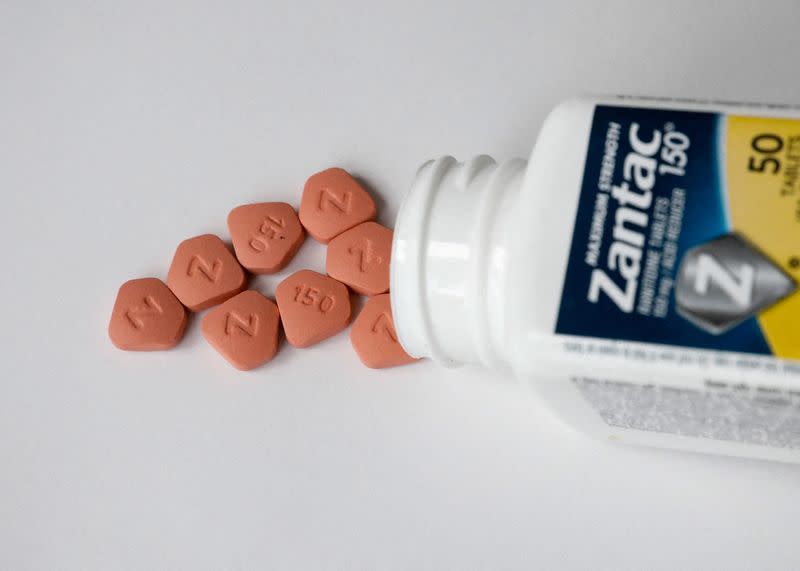GSK whistleblower claims drugmaker cheated US government over Zantac cancer risk

By Jonathan Stempel
(Reuters) -GSK has been sued by an independent Connecticut laboratory that accused the drugmaker of defrauding the U.S. government and taxpayers by concealing cancer risks in Zantac, once a blockbuster heartburn drug.
In a whistleblower complaint filed on Monday, Valisure said GSK violated the federal False Claims Act by hiding the risks for nearly four decades while Medicare, Medicaid and other health programs covered billions of dollars of prescriptions.
The New Haven-based lab said its testing in 2019 revealed that Zantac, also known as ranitidine, could form a cancer-causing carcinogen known as NMDA and was therefore "unfit for human consumption."
It said GSK concealed the same result from the U.S. Food and Drug Administration, which approved Zantac in 1983.
Valisure is seeking billions of dollars in damages from GSK, including civil fines of up to $11,000 per violation, in a complaint filed in Philadelphia, where some of the British drugmaker's operations are based.
Its lawyers also represent thousands of plaintiffs in personal injury lawsuits against GSK and other companies that have sold ranitidine.
In a statement, GSK said it will defend against Valisure's meritless lawsuit, and that the FDA has found the lab's tests "scientifically flawed and unreliable."
GSK also said there remains no consistent or reliable evidence that ranitidine increases cancer risks.
The False Claims Act lets whistleblowers sue on behalf of the federal government, and share in recoveries.
Valisure first sued GSK on behalf of the United States and more than two dozen states in 2019, in a case filed under seal.
The federal government declined to join the lawsuit in March, leaving Valisure to sue on its own.
Zantac became the world's best selling medicine in 1988, and was one of the first drugs to top $1 billion in annual sales.
The FDA asked drugmakers in April 2020 to pull Zantac and generic equivalents off store shelves after finding NDMA in samples, citing what Valisure said was its testing.
Two years later, a federal judge dismissed about 50,000 Zantac claims after rejecting the plaintiffs' scientific experts. Some of those cases are being appealed.
More than 70,000 private lawsuits over Zantac remained pending this month in U.S. courts. Most are in a Delaware state court, where a judge is weighing whether the cases can proceed.
The first trial over Zantac's link to cancer began this month in Chicago, and may end this week.
The case is U.S. ex rel Valisure LLC v GlaxoSmithKline Plc et al, U.S. District Court, Eastern District of Pennsylvania, No. 19-04239.
(Reporting by Jonathan Stempel and Brendan Pierson in New York; Editing by Marguerita Choy and Stephen Coates)

 Yahoo Finance
Yahoo Finance 